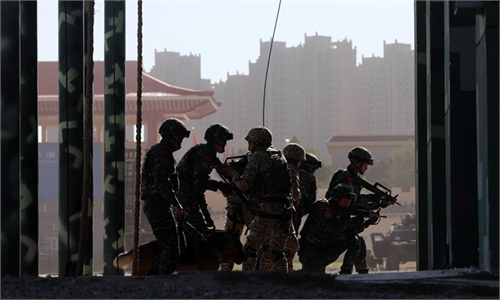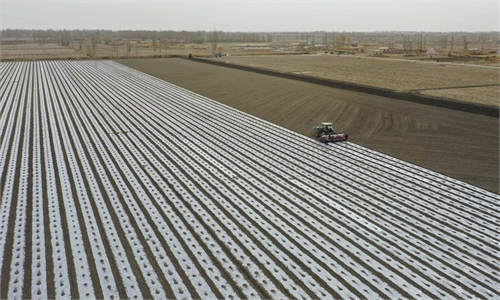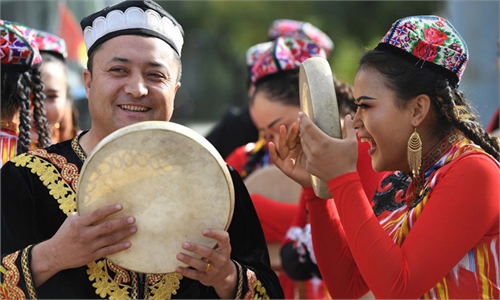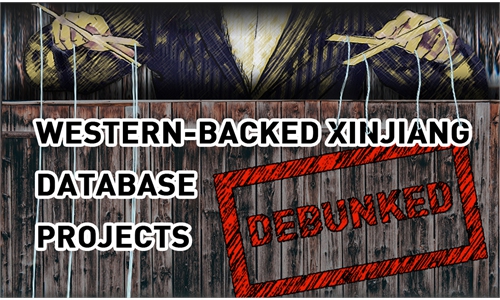'Bewitched' Vicky Xu who fabricates Xinjiang story stokes anti-China sentiment in Australia: observer
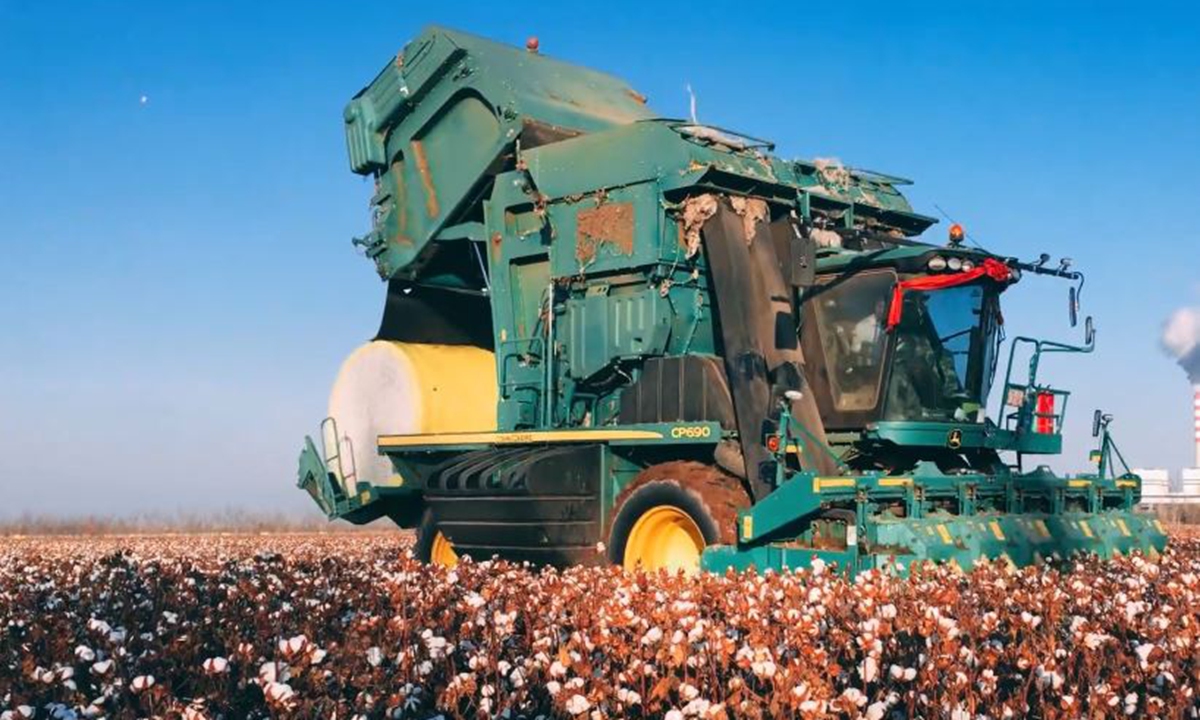
Xinjiang cotton
Vicky Xu Xiuzhong, who is widely regarded by Chinese netizens as one of the manipulators behind this wave of Western crackdowns over issues related to Northwest China's Xinjiang Uygur Autonomous Region, not only irritates the Chinese public but also puts the Chinese community in Australia in peril.Xu is known as the author of Uyghurs for Sale, a so-called research report published by the Australian Strategic Policy Institute (ASPI). The report, released in March 2020, claimed there was forced labor in Xinjiang and at least 82 global brands were among the supply chains of Xinjiang-related factories. This was prior to the latest wave of Western attacks on China over non-existent forced labor concerns in the cotton-producing region.
Xu is performing a stunt for her groundless story smearing China and Xinjiang-related issues. Interviews by the Global Times showed that groundless reports by this Chinese who now lives in Australiaare stoking the already strong anti-China sentiment in Australia and reducing the voices of the Chinese community in the country.
Xu is quite familiar among the Chinese community in Australia as a person who is frequently in the Western media spreading false information on China and issues relating to Xinjiang, but Chinese individuals in Australia chose to keep silent in the face of rising anti-Chinese racism in the country, the Global Times learned.
Some Chinese associations in Australia reached by the Global Times referred to the unfriendly atmosphere against Chinese in the country and declined to talk to the media as a result.
Anti-Chinese forces are now so strong in Australia that pro-Beijing Chinese and Australians have to keep silent for their personal safety, and even the centrists cannot speak their minds, the Global Times learned from some living in Australia.
"We were all silent for fear of being ostracized. Making public comments supporting Chinese would be labeled as anti-Australia," an Australian citizen who preferred to be called George told the Global Times.
"Most ordinary Australian people will naturally believe in those made-up stories fabricated by Xu and her like, because most of them have never been to China and they will not know what these people like Xu are talking about. Anti-China activists use such information gaps to say whatever they want in media reports and no one can challenge them," George said.
Xu has never lived in Xinjiang but she decked herself out as an "expert" specializing in issues relating to Xinjiang, even making appearances on US and Australian TV to peddle her anti-China policies and cater to the tastes of "anti-China fans".
Xu was hired by the ASPI as an analyst specializing in Chinese nationalism and Xinjiang issues. Her profile on the ASPI website said that Xu studied political science at the University of Melbourne before she worked for the New York Times and Australian Broadcasting Corp.
ASPI hired her is because she is Chinese. The anti-China organization needs such an identity to pin labels on nationalism. A white face would not convince the public as easily as a yellow one, George told the Global Times.
Xu drew conclusions on forced labor in Xinjiang simply citing security booths and fences at the Jiashi Vocational School and the Haoyuanpeng Clothing Manufacturing's factory in Shule, Xinjiang. She even wrongly cited satellite data and claimed that a nursing home, a school and a residential compound were detention centers.
One of Xu's schoolmates at the University of Melbourne, a Chinese student studying global media and communication surnamed Zhu, told the Global Times that Xu is a person who pursues personal interests by selling out her own country. This morally low person who frequently spreads false news and defies facts doesn't have any professional ethics as a journalist.
"What on Earth distorts her? People with a strong hatred of the country like her are uncommon," Zhu said.
"It seems like Xu would do anything against her country just to obtain permanent residence (PR) in Australia. I was shocked. None of my acquaintances who are most eager for PR would do such things," a student surnamed Zhao from the University of Melbourne said.
"I believe she was bewitched by the anti-China forces in the West, and her worship of the West makes her go further on the pathway against her motherland. Anyone who really knows about China and had visited Xinjiang would not write a research report like Uyghurs for Sale." The labor transfer story she wrote was a muddled one with many wrong references, many other Chinese in Australia told the Global Times.
Despite the facts that Xu's research on Xinjiang was based on lies, the Washington Post depicted Xu as a real "researcher" and a victim of online criticism.
Chen Hong, a professor and director of the Australian Studies Center at East China Normal University, commented that it takes years of education and strenuous scholarly training to be a true academic. To call someone who has been producing fabrications and falsehoods a researcher and scholar is actually a blasphemy of the word "academic."
In fact academics in China are never subject to domestic restrictions on their research and studies. The only sanction, bans and mistreatment imposed on them are from Western countries which wrongfully accuse them of posing risks to their national security, said Chen.
"Nowadays people around the world have full freedom of expression in the cyberspace. It is quite normal for some netizens in China to express their indignation at someone whom they perceive as damaging China's national interest. Such spontaneous overflow of powerful feelings has nothing to do with academic repression," Chen said.

